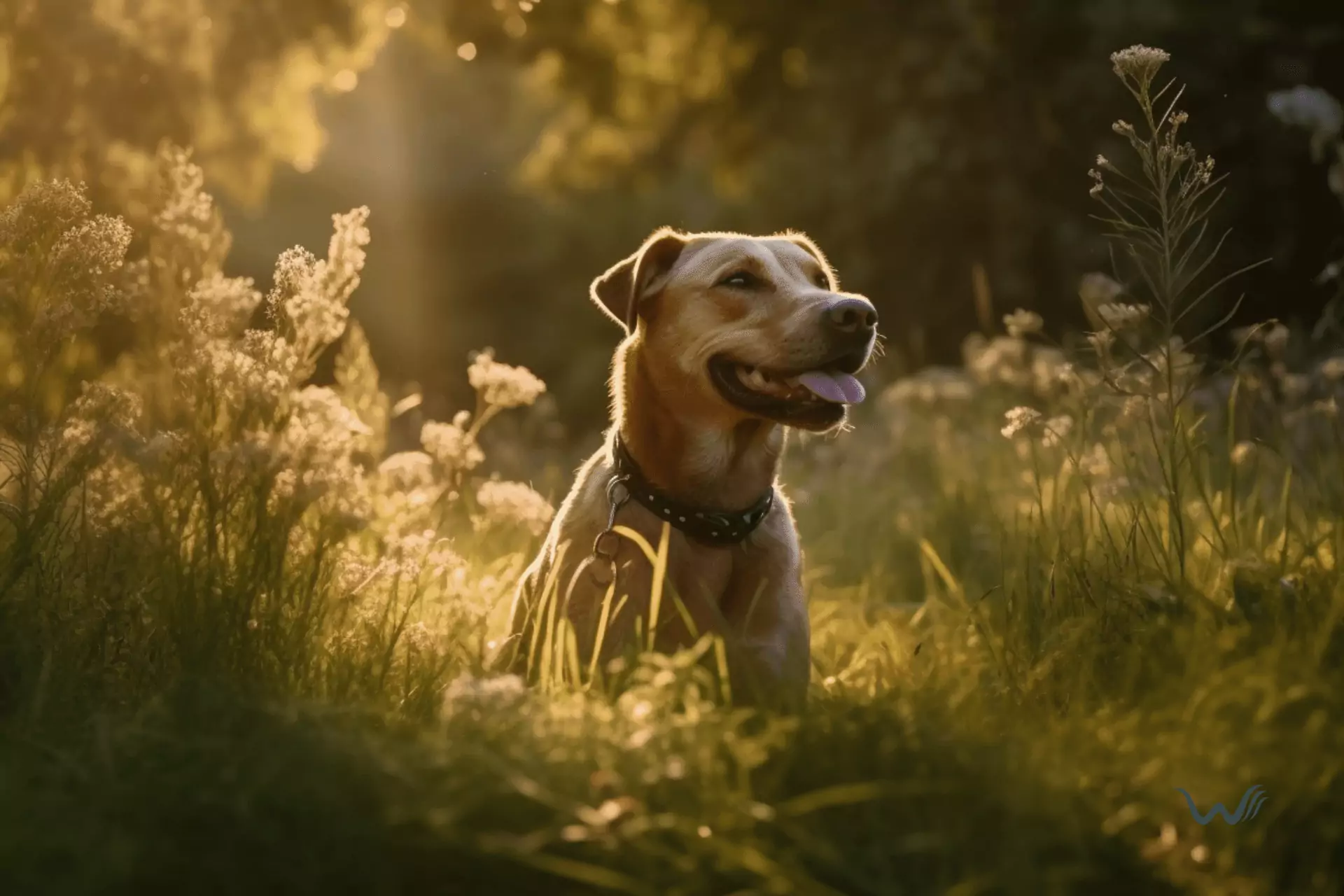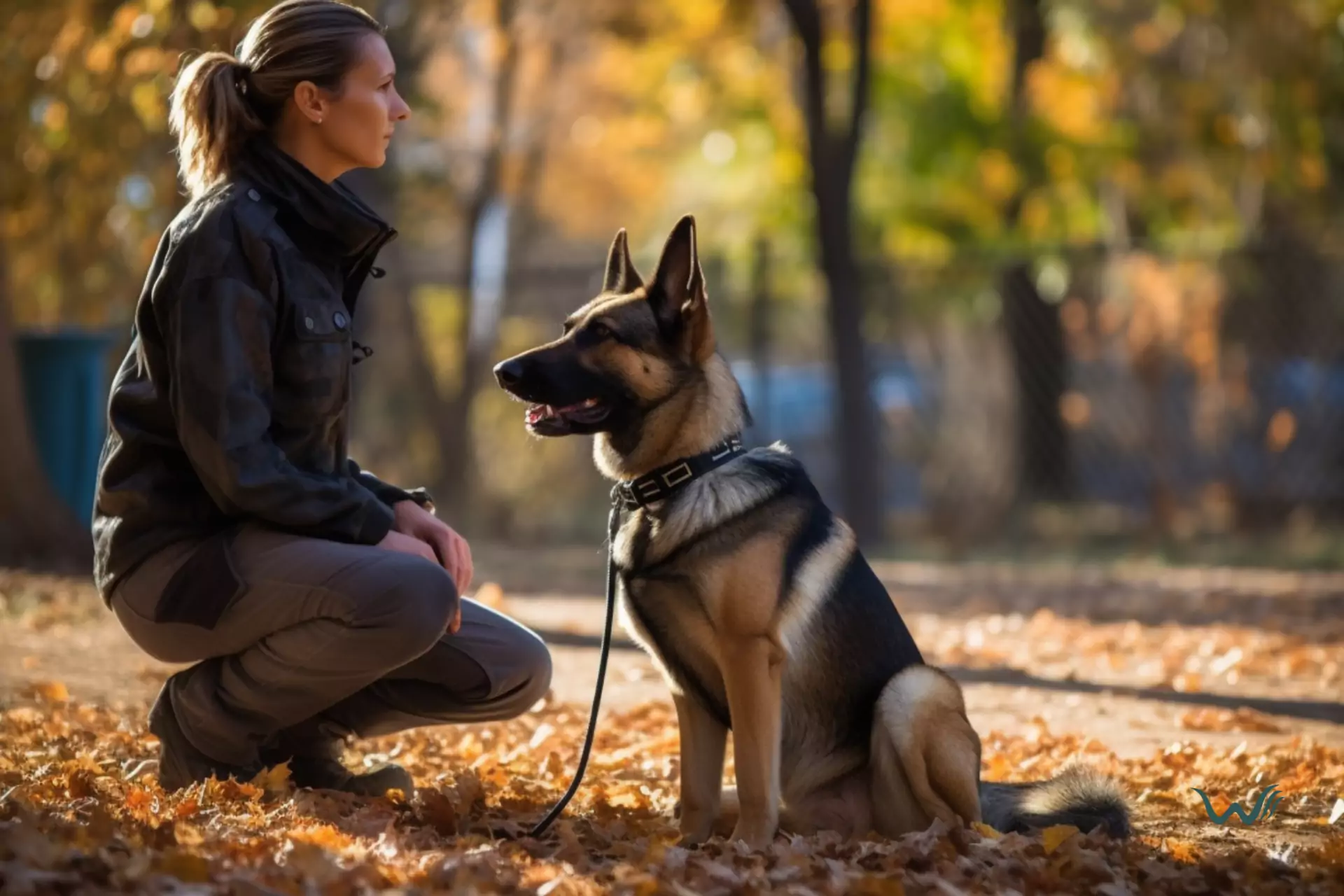

Why Do Dogs Eat Grass?
by Haley Mills
Last updated: April 22, 2024
Verified and Approved by:
Angela Morris,
MSW, LCSW
Fact Checked

Dogs are known for their peculiar eating habits, and one behavior that often leaves owners scratching their heads is grass consumption. While it may seem odd to us, this behavior is actually quite common among canines.
Many theories have been proposed to explain why dogs eat grass, ranging from instinctual behavior to nutritional deficiencies. In this article, we will explore the various reasons behind this peculiar habit, shedding light on the possible scientific explanations.
One possible reason for dogs eating grass is instinctual behavior. Dogs are descendants of wolves, who were natural carnivores but also consumed plant material in their diets. Consuming grass may be an instinctual behavior inherited from their wolf ancestors, as it could provide additional nutrients or help with digestion. Additionally, grass may serve as a natural source of fiber, aiding in food movement through the digestive system. While dogs today have evolved to consume a meat-based diet primarily, this instinctual behavior of consuming grass may still persist.
Key Takeaways
- Dogs eating grass is a common behavior among canines.
- Grass can provide missing nutrients and act as a natural fiber source for dogs.
- Dogs may eat grass to alleviate digestive discomfort or induce vomiting.
- Providing mental and physical stimulation can reduce the likelihood of dogs eating grass.
Instinctual Behavior
You may have noticed that your furry friend sometimes munches on grass, and you might be wondering why they do this. Well, it turns out that dogs naturally have an instinctual behavior that drives them to eat grass. This behavior can be influenced by a combination of environmental factors and genetic predisposition.
One possible reason why dogs eat grass is due to their ancestors’ diet. Dogs are descendants of wolves, and wolves are known to consume the entire prey, including the stomach contents. The stomach contents of herbivores often contain grass, which means that dogs may have inherited a natural instinct to eat grass as a part of their diet. This behavior can also be seen in wild dogs that scavenge for food.
In addition to their ancestral diet, environmental factors can also play a role in a dog’s grass-eating behavior. Some dogs may eat grass as a way to alleviate digestive discomfort or to induce vomiting. If a dog has an upset stomach or is experiencing gastrointestinal issues, eating grass can help them purge any unwanted substances from their system.
Not all dogs exhibit this behavior, and for some, eating grass may simply be a way to add some variety to their diet or alleviate boredom.
Nutritional Deficiencies
Sometimes, dogs may munch on grass as a way to address potential nutritional deficiencies. Dogs have an instinctual ability to identify what their body needs, and in some cases, they may eat grass to supplement their diet. Dietary imbalances can occur if a dog’s regular food doesn’t provide all the necessary nutrients, such as fiber, vitamins, or minerals. Grass can be a source of these missing nutrients, especially if the dog’s regular diet lacks variety or is low in certain essential components.
By consuming grass, dogs may be instinctively attempting to meet their nutritional needs. However, it’s important to note that not all cases of grass-eating in dogs can be attributed to nutritional deficiencies. Some dogs may have medical conditions that lead to this behavior. For instance, gastrointestinal issues like upset stomachs or digestive disorders can cause dogs to eat grass as a way to alleviate discomfort. In these cases, grass acts as a natural remedy to induce vomiting or aid in digestion.
Digestive Upset
If your furry friend seems to have an upset stomach, chances are they may turn to munching on grass for relief. Dogs with gastric upset or digestive issues often resort to eating grass as a way to induce vomiting or to ease their discomfort. This behavior is instinctual and can be observed in various animal species.
Gastric upset in dogs can be caused by a variety of factors, including dietary indiscretion, dietary changes, food allergies, bacterial or viral infections, and certain medications. These factors can lead to symptoms such as vomiting, diarrhea, bloating, and abdominal discomfort. In some cases, dogs may eat grass to induce vomiting, as it helps them get rid of any undigested food or irritants in their stomachs.
Additionally, dogs may eat grass to relieve gastrointestinal discomfort. The grass acts as a natural fiber source, which can help regulate bowel movements and alleviate constipation or diarrhea. It can also help soothe the digestive tract and reduce inflammation.
Behavioral Reasons
Curiosity might lead your furry friend to snack on grass every now and then. While it may seem strange, dogs eating grass can be a normal behavior. However, it is important to consider that there could be underlying reasons for this behavior.
One possible reason for dogs eating grass is stress-related behavior. Just like humans, dogs can experience stress, and one way they may cope with it is by engaging in certain behaviors, such as eating grass. This behavior may provide them with a sense of comfort or distraction from their stressors.
Another factor that could contribute to dogs eating grass is environmental factors. Dogs are naturally curious animals, and exploring their environment is an important part of their daily routine. Grass is readily available in many outdoor environments, making it an easy snack for dogs. Additionally, grass’s taste and texture may appeal to some dogs, leading them to engage in this behavior.
It is also possible that dogs eat grass simply because it is a natural instinct for them, as their ancestors were wild animals that would have consumed plant matter as part of their diet.
Can Barking at Noises Outside Lead to Dogs Eating Grass?
Many experts believe that dogs eat grass as a way to alleviate discomfort in their stomachs, while others suggest that it may be a result of boredom or seeking nutrients. However, some believe that the reason why dogs bark at noises outside can lead to increased stress levels, which may ultimately result in grass-eating behavior.
Can Dogs Eating Grass Help with Eco-Friendly Dog Waste Disposal?
Many dog owners wonder about disposing of dog waste responsibly. Interestingly, allowing dogs to eat grass can aid in eco-friendly dog waste disposal. When dogs consume grass, it can help with the digestion process, leading to smaller and more biodegradable waste, ultimately reducing the environmental impact.
Seeking Relief from Discomfort
When your furry companion is feeling discomfort, they may turn to eating grass as a way to seek relief. One possible reason for this behavior is seasonal allergies. Dogs, just like humans, can be affected by allergies to pollen, grass, or other environmental factors. These allergies can cause itching and irritation, and eating grass may temporarily relieve their throat or stomach. It is important to note that while eating grass may temporarily alleviate the discomfort, it’s not a long-term solution and shouldn’t replace proper veterinary care.
Another reason dogs may eat grass when they’re feeling discomfort is boredom and lack of mental stimulation. Dogs are intelligent creatures that require mental and physical stimulation to stay happy and healthy. When they’re not adequately stimulated, they may engage in excessive barking, chewing, or eating grass. Eating grass can provide a form of entertainment or stimulation for dogs, especially if they’re lacking in other forms of enrichment. Providing your dog with plenty of exercise, interactive toys, and mental challenges can help alleviate their boredom and reduce the likelihood of them seeking relief through grass consumption.
Frequently Asked Questions
Can dogs eat all types of grass, or are certain types harmful to them?
Dogs can eat most types of grass without harm. However, it’s important to avoid grass that has been treated with pesticides or chemicals. If your dog has a sensitive stomach, consider offering grass alternatives like wheatgrass or oat grass.
Is it normal for puppies to eat grass, or is this behavior more common in adult dogs?
It is normal for both puppies and adult dogs to eat grass. This behavior can be attributed to behavioral reasons such as curiosity or boredom. Some potential benefits include aiding digestion and providing nutrients.
Are there any potential health risks associated with dogs eating grass, such as ingesting pesticides or toxins?
There is limited research on the potential long-term effects of grass ingestion in dogs. However, common symptoms after eating grass include vomiting, diarrhea, and excessive drooling. It is important to monitor your dog’s behavior and consult a veterinarian if any concerns arise.
How can I prevent my dog from eating grass if I am concerned about potential health issues?
There are several ways to discourage dogs from eating grass if you are concerned about health issues. Providing a balanced diet, regular exercise, and giving appropriate chew toys can help. Certain foods or supplements may also help prevent dogs from eating grass.
Are there any alternative ways to satisfy a dog’s need to chew or eat grass without actually allowing them to consume it?
Some safe chew toys can help satisfy a dog’s need to chew without consuming grass. Natural grass alternatives, such as wheatgrass or cat grass, can also provide a similar experience for dogs.
Certify Your Emotional Support Animal Today

Why You Can Rely on Us?
At Wellness Wag, we believe your pet deserves care rooted in both science and compassion. Each article is carefully researched, written in clear language for pet owners, and then reviewed by qualified professionals to ensure the information is evidence-based, current, and practical for real-life care. Our goal is to help you feel confident in making informed decisions about your pet’s health and well-being.
Reviewed by
Angela Morris, MSW, LCSW
Angela is a licensed clinical social worker with 20 years of experience in patient advocacy and community mental health. She has assisted numerous clients with ESA evaluations and brings a deep understanding of disability accommodations, ensuring that all information is accurate, supportive, and practical.

Written by :
Haley Mills
Last Updated :
April 22, 2024










